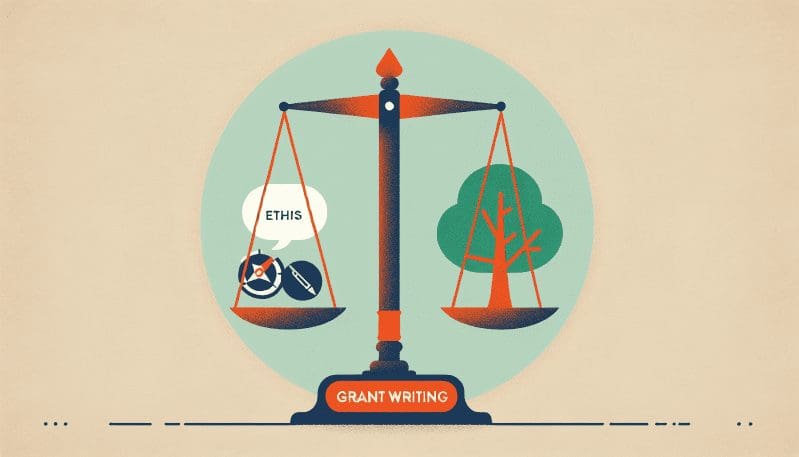Grant writing stands as a pivotal activity within the nonprofit sector, a skill that bears the weight of potential triumphs and inevitable challenges. Nonprofits, much like the beating heart of any cause-driven endeavor, thrive on the oxygen of funding—funding that often comes in the form of grants. However, the path to securing these vital resources is fraught with ethical considerations, a veritable tightrope walk between persuasion and integrity.
The art of grant writing is essentially a narrative craft. A compelling story can illuminate the invaluable impact of a nonprofit’s work, swaying grantmakers to open their coffers in support. Yet, herein lies the ethical dilemma: how does one weave a narrative that is both persuasive and truthful? The line between embellishment and fact can sometimes blur, leading to the question of whether ends justify the means.
Crossing the ethical boundary in grant writing does not come without consequences. Misrepresentation, even with the best intentions, can lead to a loss of trust—trust that is paramount in the philanthropic community. Once trust is compromised, a nonprofit might find itself facing not only funding challenges but also questions regarding its credibility and legitimacy.
Developing and adhering to ethical standards in grant writing is, therefore, a non-negotiable. Such standards serve as a North Star, guiding writers to uphold truth while still crafting compelling narratives. Training programs focused on ethical storytelling can empower writers to strike this delicate balance and avoid the pitfalls that accompany manipulative tactics.
Transparency is key in fostering trust with funders. Nonprofits must be upfront about their capabilities, their needs, and the impact potential funding will have. This transparency extends to acknowledging challenges and limitations, ensuring that expectations are aligned with reality.
The dialogues surrounding ethical grant writing in the nonprofit sector are enriched by insights from leaders in the field. Case studies that highlight successful, integrity-driven grant applications stand testament to the fact that ethical grant writing is not only possible but also effective. Conversely, examples of overstepped boundaries serve as cautionary tales, underscoring the importance of ethical practices.
The Non Profits Club blog invites you, whether you are a grant writer, a nonprofit leader, or an interested observer, to contribute to this conversation. Share your experiences, your opinions, and your insights on how to maintain this crucial balance between persuasive storytelling and ethical representation. Help us unravel this ethical dilemma, fostering a culture of integrity that underscores every word written in the pursuit of doing good.
Together, let’s navigate the nuances of narrative and ethics in the nonprofit sector, championing transparency and trustworthiness in every grant proposal. Let our collective journey through these discussions not only raise awareness but also inspire action towards more authentic and effective grant writing practices.



























